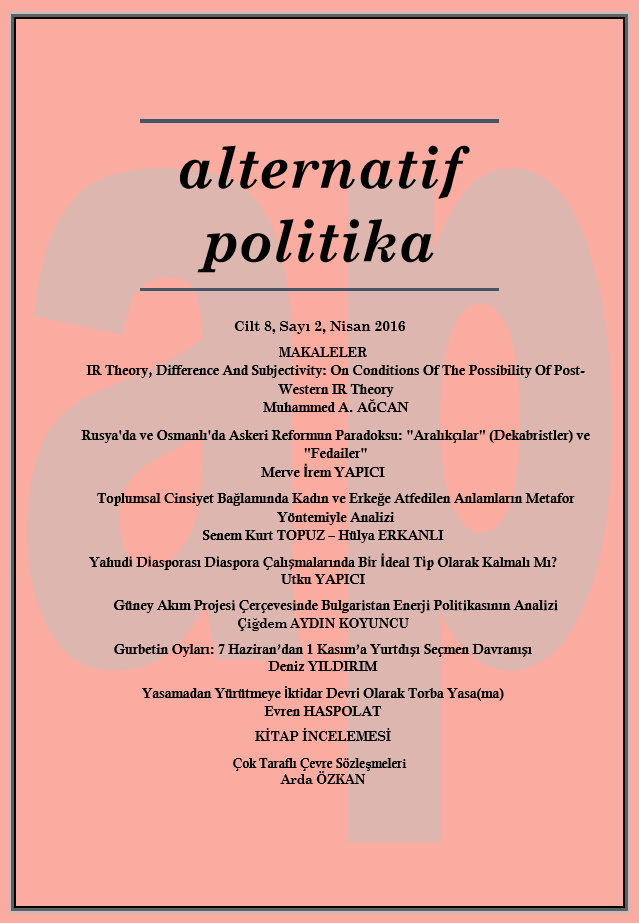IR Theory, Difference and Subjectivity: On Conditions of The Possibility of Post-Western IR Theory
IR Theory, Difference and Subjectivity: On Conditions of The Possibility of Post-Western IR Theory
Author(s): Muhammed A. AğcanSubject(s): International relations/trade, History and theory of political science
Published by: Rasim Özgür DÖNMEZ
Keywords: Post-Western IR; Eurocentrism; Postcolonialism; Non-Western Subjectivity;
Summary/Abstract: The question of difference and multiplicity in IR has been conventionally defined by the particularistic ontology of the sovereign-state based on a certain understanding of the relationship between humanity and socio-political community. In the last three decades by bringing gender, race, class, post-sovereign socio-political communities, cultural-civilizational identities etc. into IR, critical international relations theories have sought to rethink the international as being conscious of its historico-cultural settings and recognizing multiple ethico-political worlds and international imaginations in contemporary human societies. The recent debate on post-Western IR theory emerging within this conceptual-historical context seeks to problematize Eurocentrism in IR and to find ways to include non/post-western historico-cultural worlds, socio-political formations and international imaginations. Postcolonial account of this scholarly debate focuses on the colonial relations of international politics originated in the world historicity of European modernity/capitalism defending the co-constitution of self and other and accordingly develops the postcolonial subjectivity. This article critically engages with this debate on post-Western IR theory and specifically postcolonial standpoint by asking whether, how or to what extent we could conceptualize differences of non/post-Western subjectivities. More precisely the article will examine the idea of postcolonial subjectivity in terms of its possibility to do justice to the differences of non-Western subjectivities and will argue for the significance of their self-understanding/conceptualizations on the basis of philosophical-scientific and historico-cultural justifications in dealing with the question of difference/multiplicity.
Journal: Alternatif Politika
- Issue Year: 8/2016
- Issue No: 2
- Page Range: 251-269
- Page Count: 19
- Language: English

